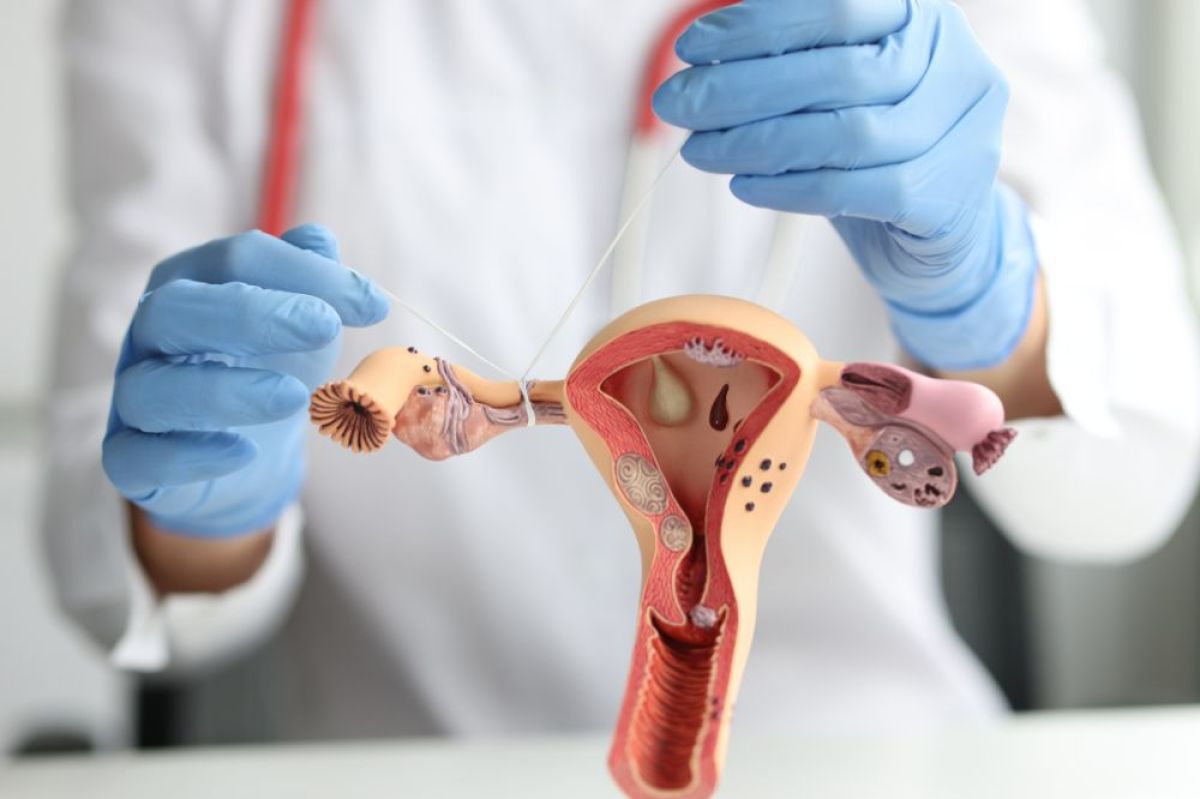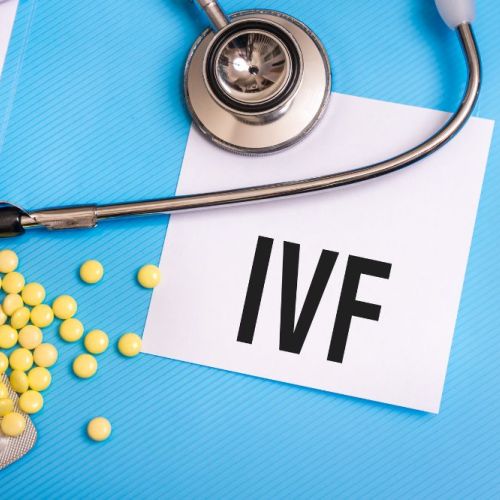How is a Tubal Ligation Reversal Done?

Women who have their tubes tied believe they won’t want more children. Many find after some time passes that they’d like to have the procedure reversed so they can try to get pregnant. If you’re considering a tubal ligation reversal, you probably have a lot of questions such as “How is a tubal ligation reversal done?” At the Center for Reproductive Health, expert microsurgical techniques are used in a state-of-the-art facility to reverse all types of tubal ligations.
Determining if You’re a Good Candidate
Before having the procedure, your doctor evaluates whether you’re a good candidate for the procedure. One of the most important considerations is your age since women over 40 may not have good egg quality. The health of your partner’s sperm is considered as well as the type of tubal ligation that was done, how much healthy tube remains and whether you have other problems that may make getting pregnant difficult such as uterine fibroids or endometriosis.
Surgical Procedure
A tubal ligation reversal is an outpatient procedure that usually takes a couple of hours. You should be able to go home the same day. General anesthesia is administered so you’ll be asleep during the procedure. A minilaparotomy is done, which means an incision is made just below the pubic hair line and above the pubic bone so that your surgeon can access your fallopian tubes. Special magnifying glasses are used to allow the surgeon to clearly visualize the tubes.
Microsurgical techniques are used to remove the damaged portion of your fallopian tubes along with any clips or bands that may have been used to block the tubes and the blocked ends of each tube is opened carefully. Once the damaged segments have been removed, the open ends of the tubes can be reattached using tiny sutures in the middle layer of each tube. This is done to prevent the formation of scar tissue on either the inside or outside of the tube. Sterile dye is run through the tubes to make sure the reattachment has been successful.
Laparoscopic Surgery
Another approach to tubal ligation reversal is done by using a robotically assisted laparoscopic technique. Using this approach, a fiber optic camera is inserted through a tiny incision to allow the surgeon to view the tubes. The surgeon is able to get a three dimensional view of the area and can instruct the robot in performing the tubal reversal. The use of a robot provides stability and prevents any shaking of the hands, and the fiber optic camera provides an enhanced view.
Once the tubes have been reattached, incisions are closed using dissolvable sutures. A bandage is placed over the surgery site. You remain in recovery for an hour or more and then you’ll be able to go home.
Your surgeon provides clear instructions on what to expect during the recovery period. You may have to avoid sex and heavy lifting for a few days, and you may be able to conceive in a year or two after surgery. To find out whether a tubal ligation reversal is a good option for you, reach out to the experts at the Center for Reproductive Health.
Eliran Mor, MD
Reproductive Endocrinologist located in Encino, Santa Monica, Valencia & West Hollywood, CA
FAQ
Reproductive endocrinology and Infertility is a sub-specialty of Obstetrics and Gynecology. In addition to managing medical and surgical treatment of disorders of the female reproductive tract, reproductive endocrinologist and infertility (REI) specialists undergo additional years of training to provide fertility treatments using assisted reproductive technology (ART) such as in vitro fertilization.
Reproductive endocrinologists receive board certification by the American Board of Obstetrics and Gynecology in both Obstetrics and Gynecology and Reproductive Endocrinology and Infertility.
In general, patients should consider consulting with an REI specialist after one year of trying unsuccessfully to achieve pregnancy. The chance of conceiving every month is around 20%, therefore after a full year of trying approximately 15% of couples will still not have achieved a pregnancy.
However, if a woman is over the age of 35 it would be reasonable to see a fertility specialist earlier, typically after 6 months of trying.
Other candidates to seek earlier treatment are women who have irregular menses, endometriosis, fibroids, polycystic ovary syndrome (PCOS), women who have had 2 or more miscarriages, or problems with the fallopian tubes (prior ectopic pregnancy).
Approximately 1/3 of the time cause for infertility is a female factor, 1/3 of the time a male factor, and the remaining 1/3 a couples’ factor.
At CCRH, we emphasize the importance of establishing a correct diagnosis. Both partners undergo a comprehensive evaluation including a medical history and physical exam.
Furthremore, the woman’s ovarian reserve is assessed with a pelvic ultrasound and a hormonal profile. A hysterosalpingogram (HSG) will confirm fallopian tube patency and the uterine cavity is free of intracavitary lesions. A semen analysis is also obtained to evaluate for concentration, motility, and morphology of the sperm.
Additional work up is then individualized to direct the best possible treatment option for each couple.
In vitro fertilization (IVF) is the process that involves fertilization of an egg outside of a woman’s body.
The process starts with fertility drugs prescribed to help stimulate egg development. In your natural cycle, your body is only able to grow one dominant egg, but with stimulation medication we can recruit multiple eggs to continue to grow. After about 8-10 days of stimulation, the eggs are surgically retrieved and then fertilized with sperm in a specialized laboratory. Fertilized eggs are then cultured under a strictly controlled environment within specialized incubators in the IVF laboratory for 3-5 days while they develop as embryos. Finally, embryos (or an embryo) are transferred into the uterine cavity for implantation.
Before deciding if IVF is the right choice, it’s important to sit down with an REI specialist to discuss available treatment options. For some people, other methods such as fertility drugs, intrauterine insemination (IUI) may be the best first choice treatment. At CCRH, we believe each individual couple is unique and not everyone needs IVF.
While not painful, the fertility medications may some side effects including headaches, hot flashes, mood swings, and bloating. The injection sites may also bruise.
Unfortunately, no. Many people think once they start IVF it’s a matter of time that they will be pregnant and have a baby. But according to national statistics per the Society of Assisted Reproduction (SART), on average 40% of assisted reproduction cycles achieve live births in women under age 35. The chances of success then continue to decrease with advancing age.
At CCRH, we employ only evidence-based interventions to ensure patient safety and optimal outcome. While we cannot guarantee a baby, we guarantee that you will receive the best, most advanced, personalized care to help you maximize your chance of a baby.
The average IVF success rate (success measured in live birth rate) using one’s own eggs begins to drop around age 35 and then rapidly after age 40. This is due to the decline in egg quantity and egg quality as a woman ages.
Our clinic’s success rate consistently beats the national average year after year.
Individual insurance plans often do not have any coverage for infertility treatments. If you have a group plan, you can call members services to see if they have coverage for infertility (including consultation/workup and IVF).
After your consultation with our REI specialist, one of our dedicated account managers with sit with you to go over the cost of treatment.




